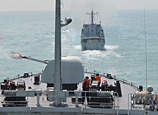
ICBC's share price rises despite sale of Goldman Sachs' remaining stake
Local investors remain confident of the medium- to long-term performance of leading bank shares, despite the sale of a $1.1 billion stake in one of the country's largest banks by Goldman Sachs Group Inc.
Industrial & Commercial Bank of China rose 0.24 percent to 4.2 yuan (68 US cents) on Tuesday - against an average 0.24 percent sector decline - one day after it was announced that Goldman Sachs had sold its remaining stake in the Beijing-based bank for about $1.1 billion.
"Goldman's decision to sell was based mainly on their need to move out of stock into cash," said Zhang Qi, a senior analyst with Shanghai-based Haitong Securities.
But there are other - mainly foreign - investors who contend that Goldman, like some other overseas institutional investors, have a dim view of the prospect of Chinese banks, which they said are saddled by large chunks of doubtful loans.
Muddy Waters LLC, the short seller, was quoted by Bloomberg on Tuesday as saying China's non-performing loan figures "greatly understate the potential scope of the problem of poor-quality loans" and the country's banking system will be forced to recapitalize a number of the banks.
Zhang said that everyone realizes Chinese economic growth has slowed, and that the authorities have conducted large-scale investments in infrastructure construction over the past several years that may trigger risks in local government debts.
But he added the current prices of bank shares already reflected that level of concern.
The price-to-earnings ratio of China Merchants Bank, for example, has declined to 6, from 40 in 2007, he said.
Goldman Sachs invested $2.58 billion in ICBC in January 2006, using internal funds that invest a mix of client, employee and corporate cash.
The bank has now sold down that stake through six deals since 2009. Total gross proceeds from the sales reached $10.1 billion, Reuters reported.
Goldman is not the first major foreign investor to have sold its stake in a Chinese bank.
Citigroup sold its entire holding in Shanghai Pudong Development Bank in March 2012, nine years after buying it, for an after-tax gain of $349 million.
And Bank of America sold 10.4 billion shares in China Construction Bank in November 2011 for a profit of about $1.8 billion, its fourth sale, while keeping a 1 percent stake.
Liu Yanfeng, CEO of the Horseshoe Bay Capital, a Beijing-based investment company focused on both the US and A-share markets, said that Goldman had made a large profit from its ICBC investments, but looking wider, he said: "Foreign investment institutions have been concerned about the bad-debts risks.
"The valuation of China's bank shares seems low from a static point of view, but if counted as bad debts risks, the price-to-book ratio is not that low."
Non-performing loans recorded by Chinese banks have increased for six straight quarters, the longest streak in at least nine years, to 526.5 billion yuan by the first quarter of 2013, according to the banking regulator.
But on the other hand, banks are still the most profitable companies in China.
Seven banks have been listed by China Economics Weekly as the "top 10 most profitable listed companies" in terms of net profit in 2102. ICBC took first place with an annual profit of 328.7 billion yuan.
The profitability of the country's banks is now being challenged because of their mission to control the rates of non-performing loans, and the liberalization of interest rates, Liu said.
However, those with good management that are able to act like market-oriented companies are worth an investment.
"Currently most banks of this kind are relatively small in scale," he added.
China Merchants Securities said in a report on Monday that the banking sector has seen a 15 percent correction since February, which reflects the pessimistic expectations of investors.
"But stable profit growth, high dividends, and the injection of new capital will usher in opportunities for bank shares to rally," he said.
















 10 million-yuan bra shines in Shengyang, North China
10 million-yuan bra shines in Shengyang, North China


![]()
